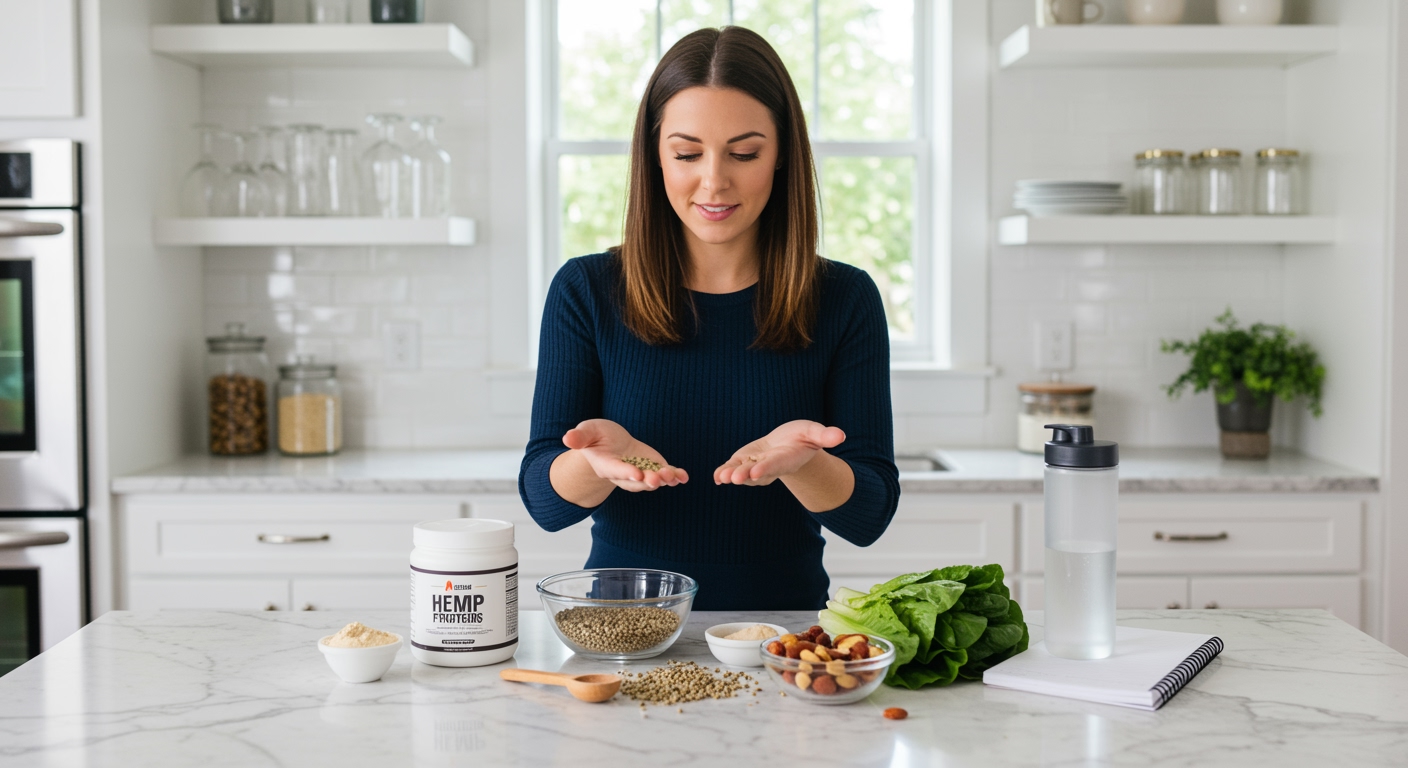✪ Key Takeaway: Women with PCOS may benefit from liver support due to increased risk of fatty liver disease and impaired detoxification.
Introduction
Your liver works overtime when you have PCOS, and most women never realize this connection.
You might be wondering about liver support because you have heard that PCOS affects more than just your ovaries and reproductive system.
Hi, I am Abdur, your nutrition coach and today I am going to explain whether women with PCOS should consider liver support and what the science tells us about this important connection.
Why Does PCOS Affect Your Liver?
PCOS creates a perfect storm of conditions that put extra stress on your liver.
Insulin resistance, which affects up to 70% of women with PCOS, forces your liver to work harder to process glucose and manage blood sugar levels.
High insulin levels trigger your liver to produce more triglycerides and store excess fat, leading to non-alcoholic fatty liver disease.
Chronic inflammation from PCOS also damages liver cells and impairs the organ’s ability to detoxify hormones and metabolic waste.
Research shows that women with PCOS have a 55% higher risk of developing fatty liver disease compared to women without the condition.
Your liver also plays a crucial role in hormone metabolism, breaking down excess androgens and estrogen that contribute to PCOS symptoms.
✪ Fact: Women with PCOS are 2.5 times more likely to develop non-alcoholic fatty liver disease than healthy women.
What Are The Signs Your Liver Needs Support?
Many women with PCOS experience fatigue that goes beyond normal tiredness, which can signal liver dysfunction.
Difficulty losing weight despite following a healthy diet and exercise routine often indicates your liver is struggling with fat metabolism.
Hormonal imbalances that seem resistant to treatment may suggest your liver cannot effectively process and eliminate excess hormones.
Digestive issues like bloating, nausea, or discomfort after eating fatty foods can point to bile production problems in your liver.
Elevated liver enzymes on blood tests, particularly ALT and AST, indicate liver inflammation and cellular damage.
Skin problems like acne that worsen with PCOS may reflect your liver’s inability to properly detoxify hormones and toxins.
✪ Pro Tip: Ask your doctor to check your liver enzymes and consider an ultrasound if you have multiple PCOS symptoms.
Which Liver Support Options Work Best?
Milk thistle contains silymarin, a compound that protects liver cells from damage and supports regeneration of healthy tissue.
Studies show that milk thistle can reduce liver enzymes and improve insulin sensitivity in women with PCOS and fatty liver disease.
N-acetylcysteine (NAC) acts as a powerful antioxidant that helps your liver produce glutathione, the body’s master detoxifier.
Research demonstrates that NAC supplementation can improve insulin resistance and reduce liver fat in women with PCOS.
Alpha-lipoic acid enhances liver function by improving glucose metabolism and reducing oxidative stress in liver cells.
Dietary changes like reducing processed foods and increasing fiber intake provide natural liver support without supplements.
✪ Note: Always consult your healthcare provider before starting any liver support supplements, especially if you take medications.
Can Diet Replace Liver Support Supplements?
A well-planned diet can provide significant liver support without the need for supplements in many cases.
Cruciferous vegetables like broccoli and Brussels sprouts contain compounds that enhance your liver’s detoxification pathways.
Foods rich in antioxidants such as berries, green tea, and leafy greens protect liver cells from oxidative damage.
Limiting refined sugars and processed foods reduces the workload on your liver and prevents further fat accumulation.
Adequate protein intake supports liver regeneration and helps maintain healthy enzyme production for detoxification.
However, women with severe PCOS symptoms or diagnosed fatty liver disease may need targeted supplementation alongside dietary changes.
✪ Pro Tip: Start with dietary changes for 3 months before considering supplements to assess your body’s natural response.
The Bottom Line
Women with PCOS should seriously consider liver support due to the increased risk of fatty liver disease and impaired hormone metabolism.
Your liver health directly impacts your PCOS symptoms, so supporting it supports your overall well-being.
I would love to hear about your experience with liver support or any questions you have about managing PCOS through nutrition in the comments below.
References
At NutritionCrown, we use quality and credible sources to ensure our content is accurate and trustworthy. Below are the sources referenced in writing this article:
- PMC: PCOS and Liver Health Research
- WebMD: Fatty Liver Disease and PCOS
- Frontiers in Endocrinology: PCOS Liver Connection Study
- PCOS Nutrition: Fatty Liver and PCOS Management





